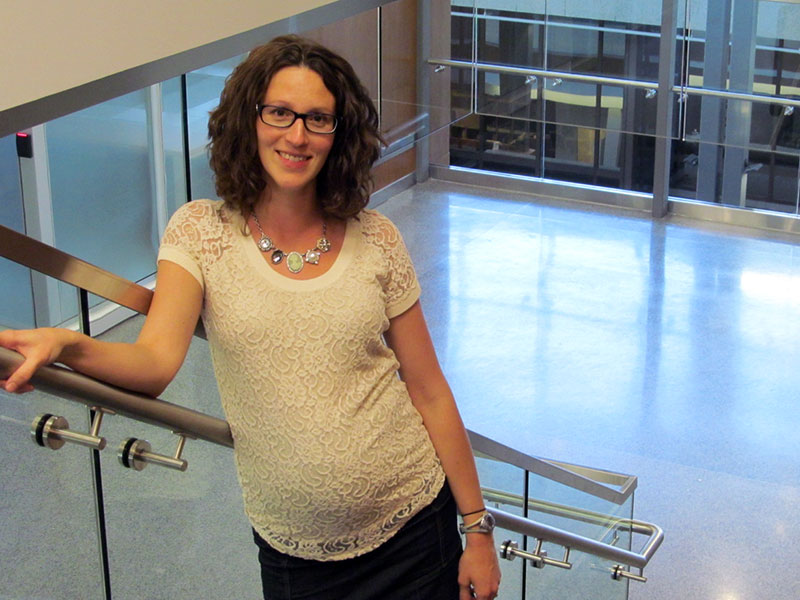
Dr. Janet McCabe Receives Special Oympics Canada Research Grant
College of Nursing Assistant Professor Dr. Janet McCabe has received funding from Special Olympics Canada for her exciting project that will explore the involvement of rural athletes with intellectual disabilities in Special Olympic programs.
Her project titled "Building Capacity in Rural Communities - Understanding Barriers to Sports Participation by Children and Youth with Intellectual Disabilities" is co-investigated with Dr. Laurie Hellsten-Bzovey (College of Education, U of S) and Laureen McIntyre (College of Education, U of S).
Participating in activity helps maintain physical and mental health and promotes independence for individuals with intellectual disabilities. It is well known youth without disabilities are more engaged in sports and leisure activities than youth with disabilities; however, little research has focused on the specific experiences of youth living in rural areas. When complete, this research project will describe the participation of youth (ages 6-21) with intellectual disabilities, living in rural communities and identify factors that influence participation in Special Olympic programming.
"I am extremely excited about this project and our partnership with Special Olympics," said Dr. McCabe when asked about the project. She went on to say, "I have witnessed firsthand the benefits of Special Olympic programming for individuals, from a physical and mental health perspective. Engagement in sport is more than simply being active, it provides participants with an opportunity to socialize, be mentored, develop independence, learn valuable life skills and be champions in their home communities."
The researchers on this project hope the information collected will give Special Olympics Canada an understanding of the unique needs of athletes and potential athletes living in rural areas. As well, they would like to identify for Special Olympics Canada the obstacles and facilitators faced by athletes and their families in relation to participation. This knowledge will contribute to a better overall understanding of rural athletes. As well, by identifying the types of healthcare stakeholders to engage and build partnerships with, the information will help to build capacity at a community level. As Special Olympics Canada is committed to growing their athlete base, extending their programming to specific markets and contributing to social change; the knowledge gained on the unique rural perspective will help the organization to achieve these visions.
For more information on Special Olympics Canada and Special Olympics Saskatchewan, please visit their websites, www.specialolympics.ca and www.specialolympics.sk.ca.

